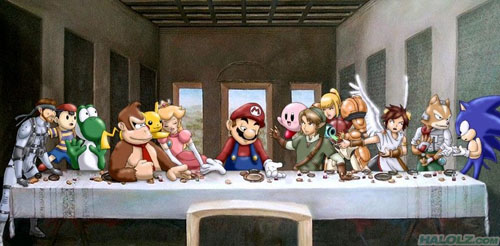Albion said:
richardhutnik said:
Here is something to keep in mind regarding copyrights, and other protection of intellectual property: It is a means to insure the creators of intellectual property get compensated. If the marketplace comes up with means by which they are able to get compensated beyond the normal routes, then it is possible to have the public domain show up.
I have done game designers. Rather than try to protect what I have with paranoia over someone stealing my ideas. I get my ideas up on the web first, in full exposure. If any of my designs happen to become relevant, because someone takes them and runs with them, I would bank on curiousity to reveal I was an originator of the idea. My belief now is that an idea is FAR more likely to get lost today than stolen, so I am in favor of exposure for what I have worked on. I have seen enough stories of individuals trying to patent chess variants, for example. They end up killing off any chance of having their design catch on if they do that.
|
The more people succeed with a model like your, the more support for public domain we get.
That is if you don't turn your back once you become a billionaire =)
|
I am not sure my model is really pushing for public domain, in the purest sense (I did use the term, but maybe a bit loosely). What I advocate is a manage system of adopt and extend that allows the original creators of the IP to get adopted also (like imagine someone designs a collectable cardgame, or a deck building game like Dominion, where the community could create and sell cards to the community and all people involved get a cut). Where I am now is that I have NO reputation as a game designer that generates money, so my games sit and generally get ignored, unless I mention them, and promote them like here. Watch me shill this simultaneous turns version of Connect Four that people like: http://boardgamegeek.com/boardgame/41491/simultaneous-captains-mistress
Here are the rules for it: http://games.wtanaka.com/simfour#rules
Here is where you can play it online, if you want to try it: http://games.wtanaka.com/simfour
It sits as not financially taking off, due to the fact it doesn't have a financial record, and people generally steal what they seek making money. But, for practical reality, I just put it out there for exposure and hope someone picks it up and I can get a community behind my designs (well CADERS and IAGO are meant to be a vehicle for that).
Another thing I have, and why I can bring it up freely is a version of games like Connect Four, and can fit any other abstract strategy game where you take a crowd, divide them into two teams. During the turn of a player's team, the players on that team vote for a move. Biggest vote getter, with a tiebreaker mechanism, gets the vote. When it isn't the turn of the team a player is on, they can defect to the other team. That, in a nutshell is the design idea, and should work. It has a lot of potential. But, will anyone steal this and run with it, and try to make millions off it? Nope. The reason is that it doesn't have a track record of drawing people in to play it. So it goes uncoded, eventhough if it took off, it would start to make money, and could make a LOT of money. At that point, it would get ripped off. Of course, with proper branding, all the ripoff attempts would merely remind people of the original. And in this, the money wouldn't be in the game, but in the players and the community playing the game.
Anyhow, I am up for anyone who wants to work on any of my designs to contact me. Or at least be up to try some. Or shoot, join the CADERS community I have on Facebook.
Ok, I did my shill soapbox. Will see if the money comes rolling in.

















































